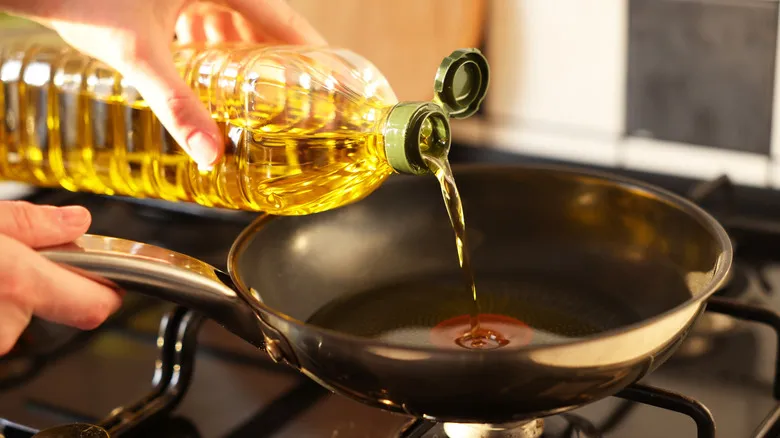The factors that damage your oil's shelf life (and how to avoid them)
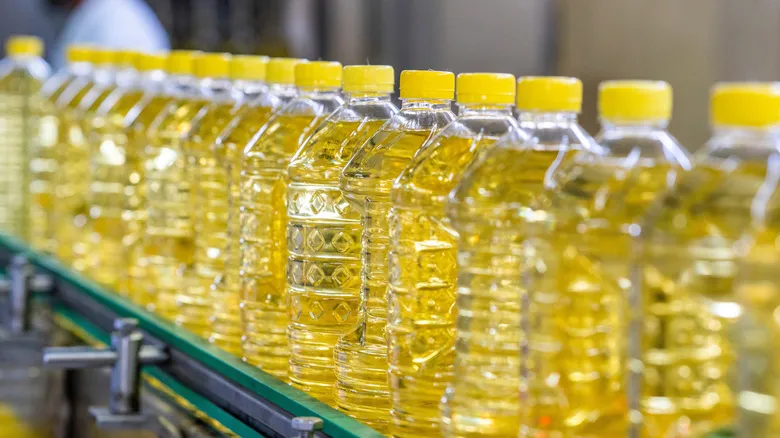
To ensure your vegetable oil remains fresh and doesn't go rancid, there are three key factors to address. The first is heat. When oil is heated, it undergoes chemical reactions that lead to its breakdown, causing it to spoil more quickly. This is particularly evident when oil is used in frying, which is one reason why repeatedly reusing cooking oil is discouraged. Additionally, storing your oil bottle near the stovetop means it will be subjected to heat fluctuations multiple times a day, accelerating spoilage.
The second factor is air, which relates to oxidation. Exposure to air causes oil to oxidize more rapidly, leading to quicker rancidity. To mitigate this, always keep your oil container tightly sealed when not in use. If the seal isn’t airtight, consider transferring the oil to a different container.
The third factor affecting the shelf life of vegetable oil is light. Direct sunlight can harm your cooking oil by accelerating the oxidation of fatty acids, among other effects. To prevent this, store your oil in a dark cupboard or in a container designed to shield it from light. You may have noticed that some oils, especially well-preserved olive and avocado oils, are packaged in green or brown glass bottles to protect their contents from light exposure.
Why vegetable oil's shelf life is important (even if you don't mind the taste)
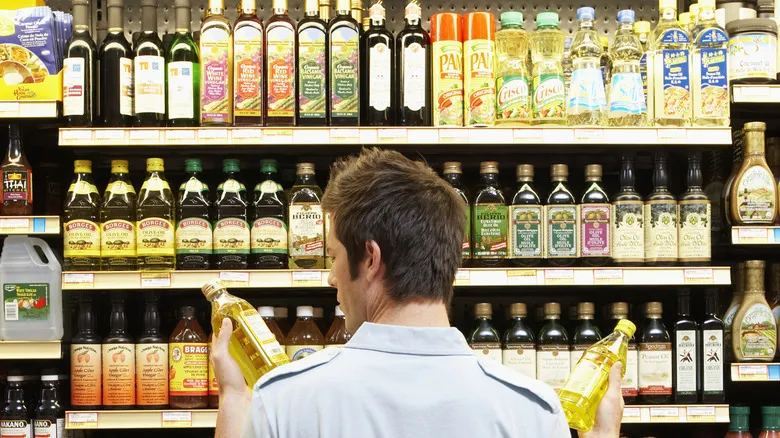
When you first open a new bottle of vegetable oil, you probably won't detect any scent. However, if the oil has gone rancid, it often emits a sour odor reminiscent of Play-Doh. You may also notice an unpleasant or bitter taste, a stickier texture than normal, or a darker hue than what you're accustomed to. While these signs might be unappealing, you might be tempted to overlook them and use the oil anyway—after all, will you really notice it once it's baked into a cake or used for frying breakfast? More likely, you might simply forget to check if your oil has spoiled.
Nevertheless, using rancid oil can pose significant health risks. As the oil deteriorates and oxidizes, it produces harmful free radicals. These free radicals can interact with your body, potentially causing cell damage. In addition to triggering inflammation and digestive problems, they have been associated with various diseases, including heart disease, arthritis, diabetes, and cancer. So, while it may seem inconvenient to store your oil in a cupboard and regularly check its freshness, doing so is likely to be beneficial in the long run.
What to do with vegetable oil that has gone bad
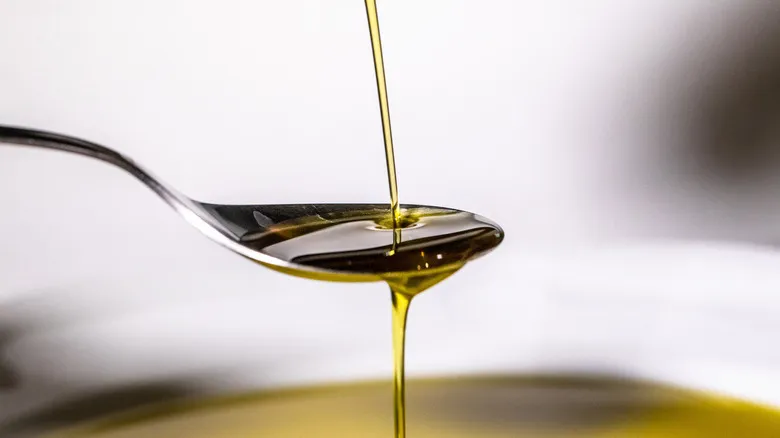
Even when stored under optimal conditions, vegetable oil typically remains good for only 12 to 18 months. This may not pose a problem if your kitchen sees a lot of activity or if you purchase oil in smaller quantities. However, if you discover that your oil has been sitting unused for too long—perhaps because you bought a large container or it got pushed to the back of your cupboard—it's time to dispose of it.
When getting rid of vegetable oil, it's crucial not to pour it down the drain. Doing so can cause the oil to solidify, leading to significant issues in local sewer systems, or it may seep into the surrounding environment. You can throw away cooking oil by placing it in a sealed container (never pour it directly into your trash can). The most eco-friendly method, however, is to collect your used or expired oil and recycle it. Check with your local recycling centers, as they often have designated bins for used oil, which can be converted into renewable fuel.
Recommended
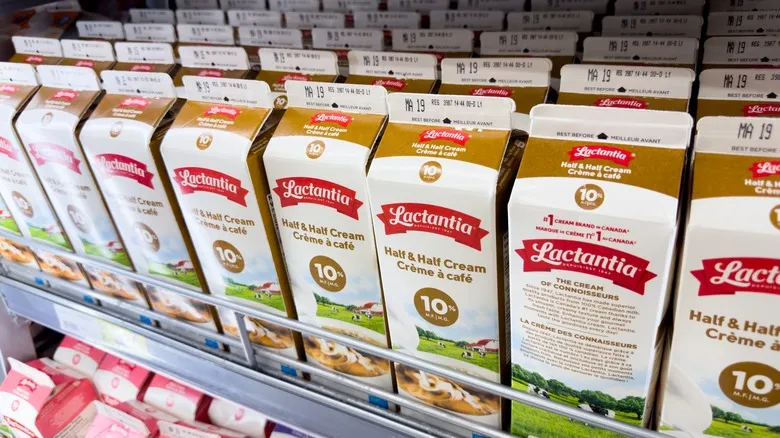
How Long Is Half And Half Good For After It's Been Opened?
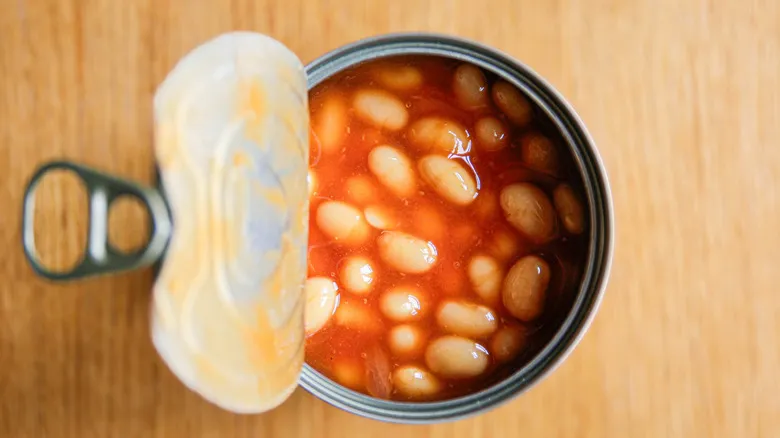
The Problem With Storing An Open Can Of Food In The Fridge
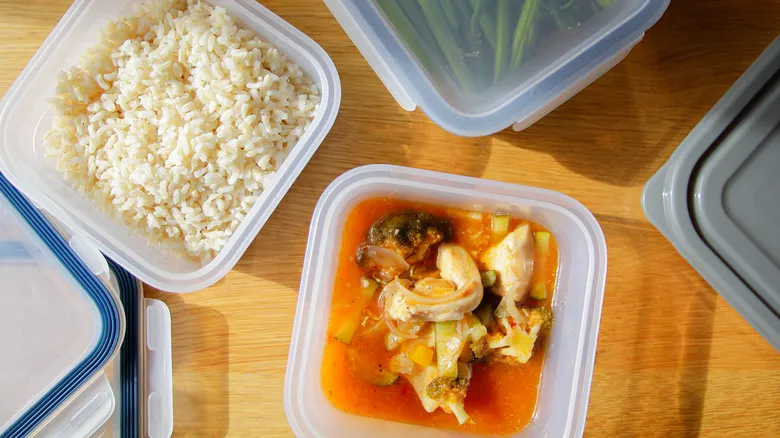
The One Hack You'll Need When Freezing Sauces And Leftovers
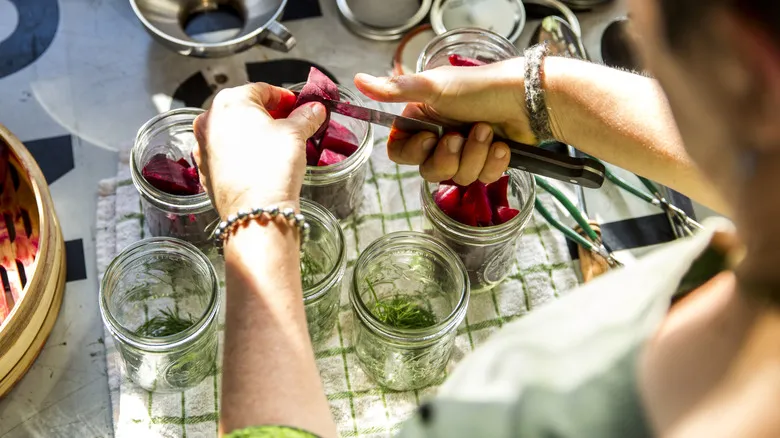
Why Dry Canning Food Can Be Extremely Dangerous
Next up

